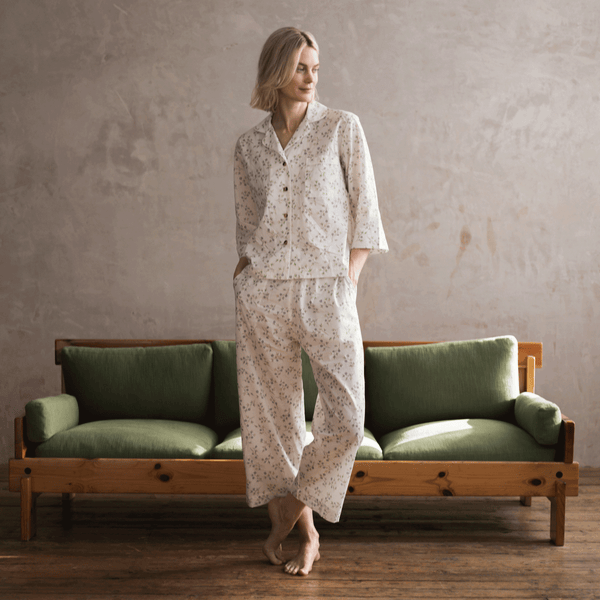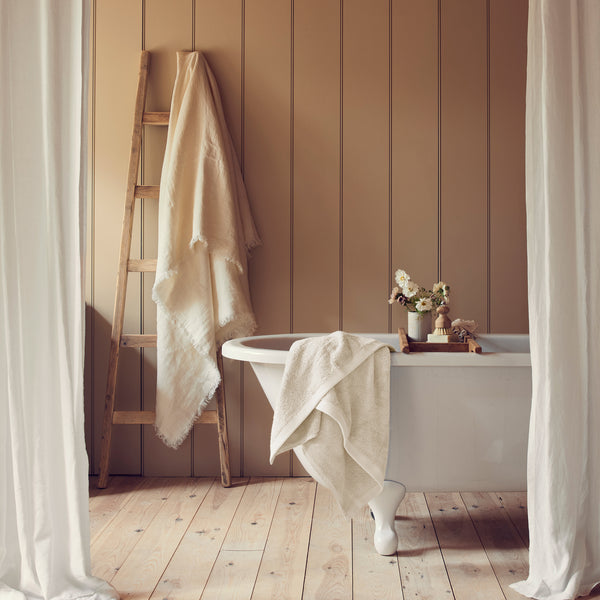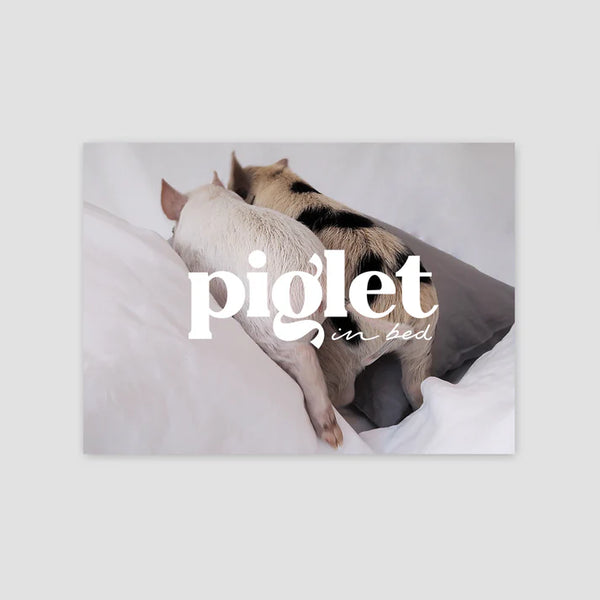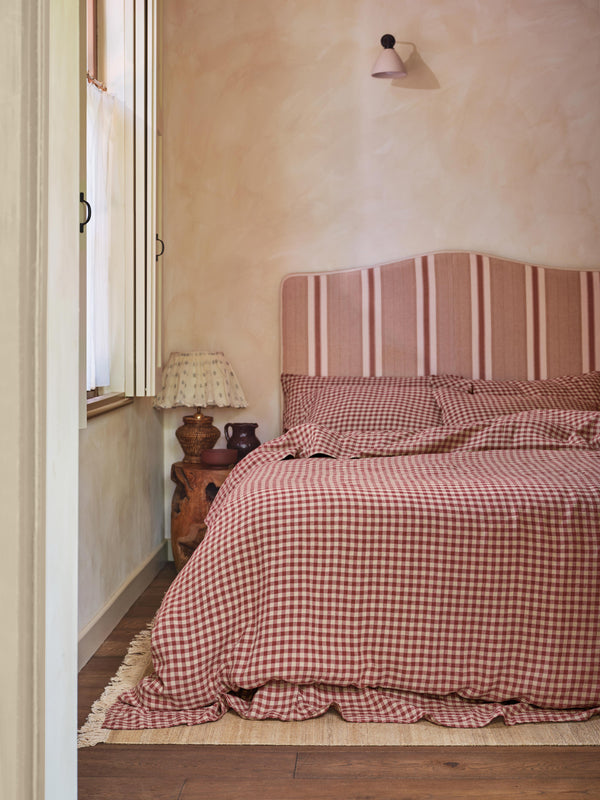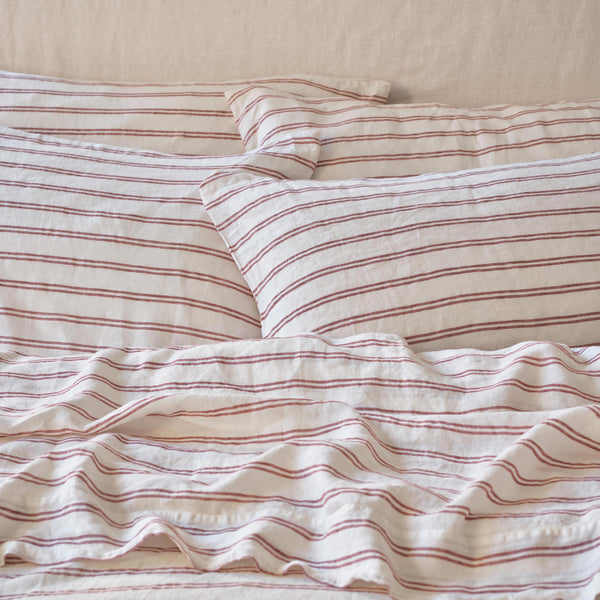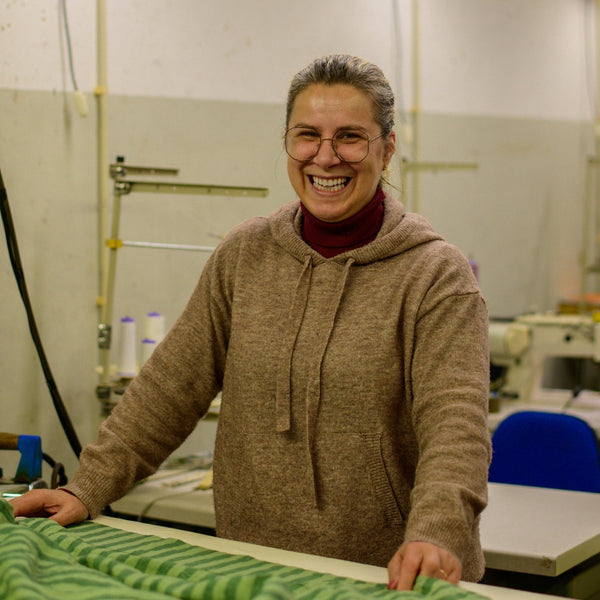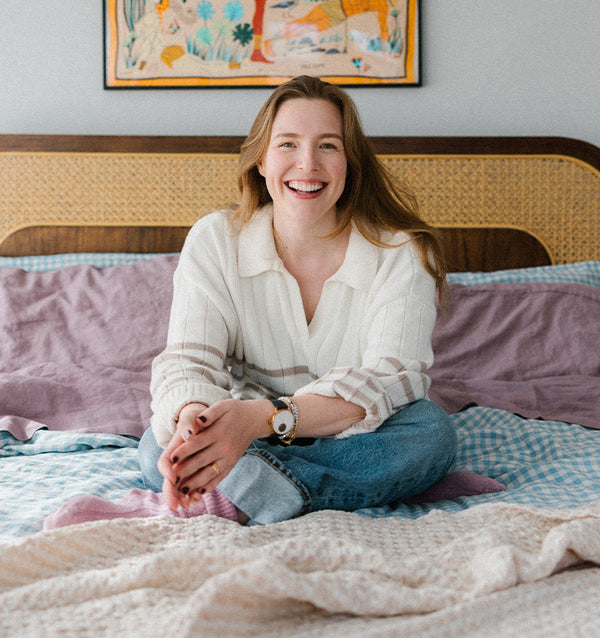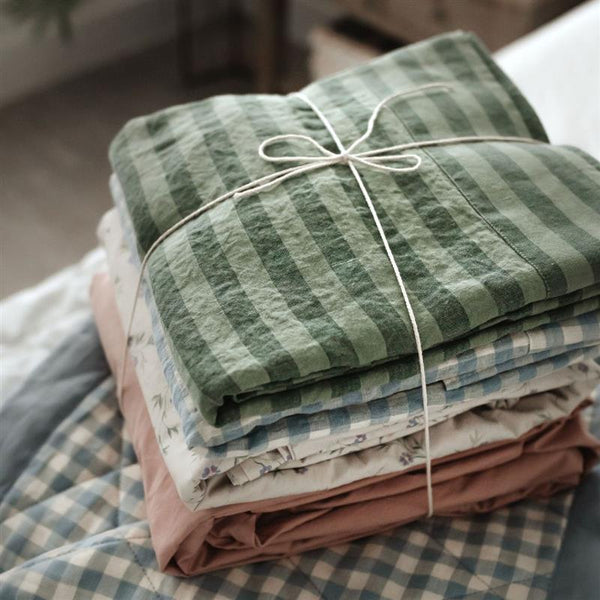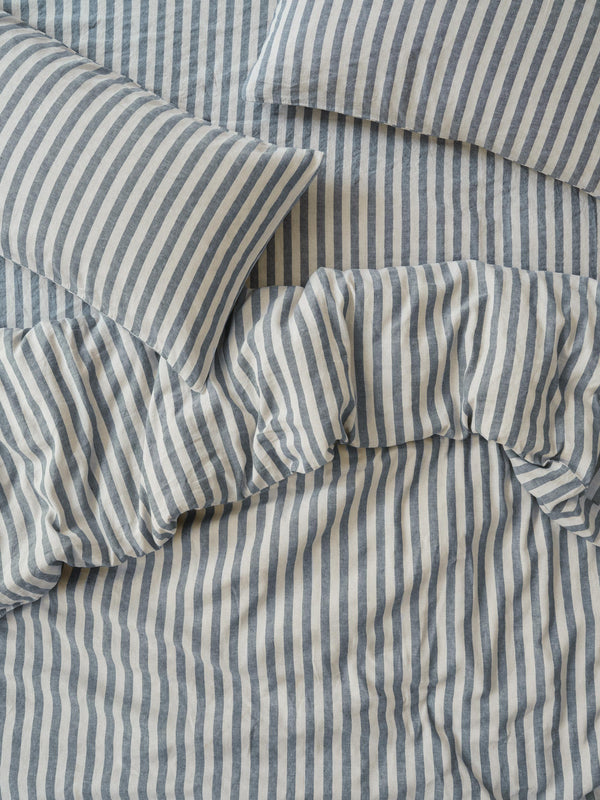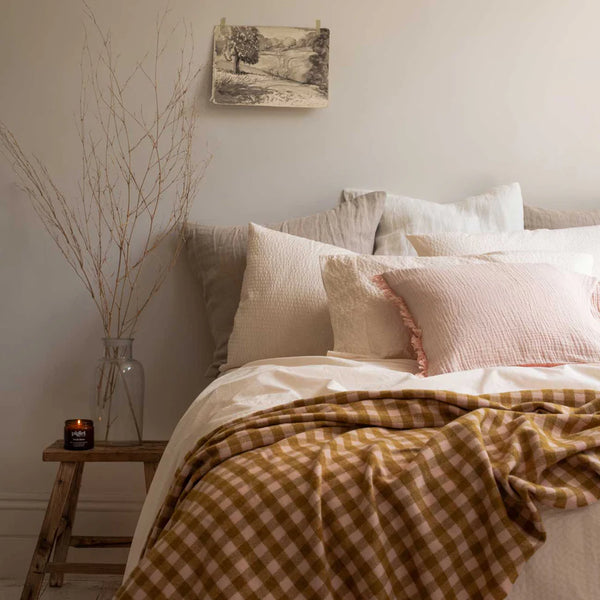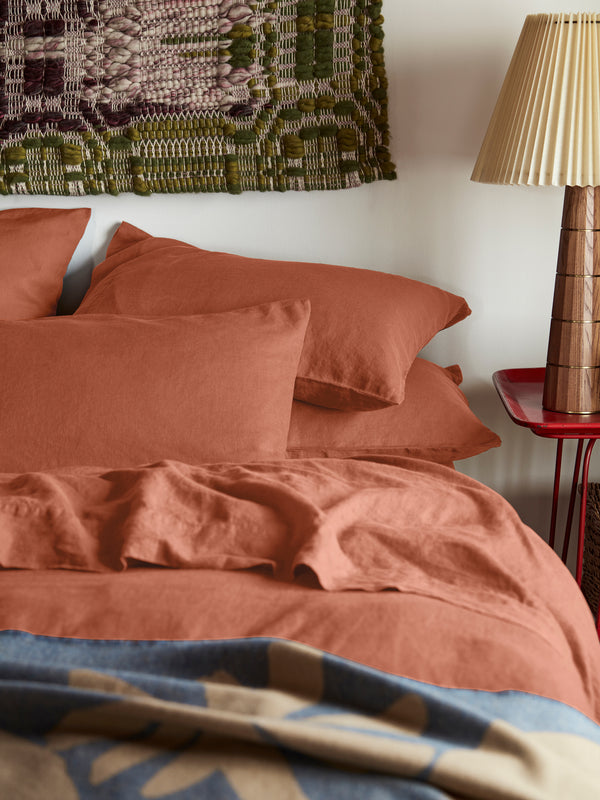The perimenopause and menopause are times of great hormonal and physical upheaval in a woman’s life, with a wide range of symptoms that vary from person to person. It’s no surprise that all this change in your mind and body can wreak havoc on your sleep, with sleep disorders affecting 39-47% of perimenopausal women and 35-60% percent of postmenopausal women.
Two of the most common factors reported by women experiencing insomnia during the menopause are the dreaded hot flashes and night sweats. If you are suffering with these symptoms, it’s super important to ensure your sleep environment is designed to give your body’s temperature control system a helping hand, as your once-reliable dial suddenly finds itself working in overdrive.
Linen is an extremely unique natural fabric due to its built-in thermoregulation abilities which allow it to act in the same way that our skin does when faced with different temperatures. Just as we shiver when we’re cold, linen fibres contract to reduce the space between them, trapping the air between you and the material which in turn becomes warmer and insulates you as you sleep. Likewise, when the air is hot, the space between linen’s long fibres expands, allowing warm air to escape through the fabric and your body to cool down as a result.
This ‘breathability’ - the ability to allow air to exchange from one side of the material to the other - is a skill that is unique to linen, and one of the reasons women who are going through menopause choose to opt for linen sheets and linen pajamas. It’s always a delight to hear from our customers who are going through the menopause that their Piglet linen bedding and pajamas have helped reduce night sweats and to keep them at a comfortable temperature.
 Linen pajamas: a must-have for women experiencing menopausal symptoms
Linen pajamas: a must-have for women experiencing menopausal symptoms
Skin sensitivity can be another issue contributing to poor sleep during the menopause. Interiors blogger Maxine Brady recently tried a set of our linen bedding and came to us with this wonderful review: “Linen sheets feel nice and soft on my skin - which is more sensitive these days. The natural fibres help with sweat-wicking so that my skin can breathe - meaning I don't sweat as much as I used to”.
For further advice on managing insomnia during your menopause (or maybe just in general), check out our recent Journal entry with sleep expert and all round lovely human, Dr Allana Hare. If you are still suffering despite these strategies and the changes you’ve made to your sleep environment, do make sure to tell your doctor. CBT-I (Cognitive Behavioural Therapy for Insomnia) can be very effective for women experiencing sleep problems at this stage of their life, while hormone therapy in the form of HRT is particularly helpful for treating hot flashes and night sweats.

